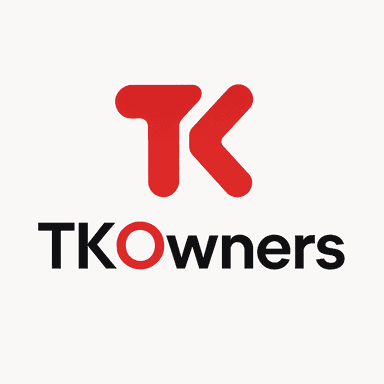Overview / Executive Summary
Let’s get one thing straight: this isn’t passive income. You’re not kicking back with a piña colada while the ad dollars roll in. This is a full‑contact, negotiation‑heavy, logistics‑driven ad business disguised as a quirky idea. That said, it has legs. The global out‑of‑home advertising market is still massive, and malls believe it or not still see serious foot traffic. If you can handle mall managers, local businesses, customs, and a rolling display that doesn’t tip over, this business can be highly profitable. Just don’t call it passive.
Value Proposition
This business is about attention in unexpected places. Advertising cans are physical ad placements that sit in high‑foot‑traffic areas like shopping malls, catching eyes precisely because they’re weird. We’re not competing with billboards. We’re providing affordable, flexible real estate for local businesses who want to get seen where their customers already shop.
- Hyperlocal exposure at a fraction of digital CPMs
- Creative ad surfaces that spark conversation
- Plug‑and‑play campaign options for busy local advertisers
- Mall operators a new revenue stream without cluttering aesthetics
Target Audience
Our buyers are not the big brand execs with $500K digital budgets. We’re talking small to midsize advertisers with local needs and real foot traffic ambitions:
- Local businesses (retail, restaurants, services) trying to pull customers in from the same mall or surrounding area
- Event promoters who want attention for concerts, seasonal attractions, or pop‑ups
- Ad agencies handling regional clients looking for nontraditional placements
- Mall management exploring new revenue opportunities
Pain points
- Limited affordable ad options in physical spaces
- Difficulty standing out from digital noise
- Skepticism about digital ROI for hyperlocal goals
We solve this with simple, visible placements and reasonable pricing.
Market Landscape
The global out‑of‑home advertising market topped $50 billion in 2024. While digital OOH (think Times Square screens) is growing fast, traditional static formats still hold meaningful share, especially in places like shopping malls, airports, and campuses.
Mall advertising has staying power. People walk, linger, browse, and shop. Unlike digital ads that get skipped or blocked, this is physical, unmissable, and local.
There are no dominant players focused specifically on advertising cans, which gives us room to own this niche if we execute. We’re not going toe‑to‑toe with Lamar or Clear Channel. We’re slotting into the cracks they ignore.
SEO Opportunities
Keyword data shows a lot of long‑tail, high‑intent searches like:
- mall advertising ideas
- local advertising displays
- how to advertise in shopping malls
- passive income from ad placements (ha!)
- OOH advertising for small business
We’ll build content around those to catch curious entrepreneurs and local business owners. But let’s be clear we’ll focus on intent‑first keywords, not vanity traffic.
Go‑To‑Market Strategy
- Launch with a pilot in a single mall. Get a few cans placed. Secure two or three advertisers. Gather testimonials and engagement data (foot traffic counts, QR code hits, customer mentions).
- Use that data to sell to the next mall and the next five advertisers. Now you’ve got a pattern.
Early Momentum Tactics
- Negotiate mall placement rights first. Pitch the mall operator a cut of revenue or a small rental fee per can.
- Use your pilot case study to show potential advertisers the visibility and pricing.
- Offer free design support for the first 10 advertisers to lower their barrier to entry.
- Sell bundled placements (get two months for the price of one, advertise on two cans instead of one).
- Use local SEO + outbound cold email to target advertisers near each mall.
- Highlight seasonal campaigns (Back to School, Black Friday, holiday sales) to lock in short‑term wins.
First 100 customers will come from door‑knocking, emails, and local business networks. This isn’t viral. This is hustle.
Monetization Plan
This is simple. You’re renting ad real estate.
- Fixed‑rate pricing per can per month ($300–$600 depending on location and mall traffic)
- Tiered pricing for placement prominence (center court vs side hallway)
- Multi‑can and multi‑month discounts
- Revenue‑sharing deals with malls (optional but helps with placement approvals)
- Upsells: ad design services, QR code tracking, digital pairing (e.g., run this in‑mall + on Facebook)
- Bundled campaigns for seasonal promos
This business scales with cans, not eyeballs. More cans = more ad inventory = more revenue.
Financial Forecast
Startup Costs
- Initial 10–15 advertising cans: $12,000–$15,000 (including customization and shipping)
- Branding, simple website, sales collateral: $5,000
- Travel + negotiation + pilot expenses: $5,000
Total startup estimate: $20,000–$25,000
Revenue Projections (Year 1)
20 active cans, each generating $400/month in ad revenue
$8,000 per month revenue at scale = $96,000/year
Gross margin after mall fees, minor ops costs: 50%–60%
Net: ~$40,000–$50,000 after year one, if cans are consistently filled
Break‑even: Month 8–12, depending on fill rate
Risks & Challenges
- Getting mall approval is slow and political. Relationships matter.
- Advertiser skepticism about ROI. You’ll need data and charm.
- Empty can risk if you don’t sell the space, it costs you.
- Customs/import drama if you’re sourcing cans overseas.
- Seasonality: holiday months are hot, summer slumps may drag
- Maintenance headaches (graffiti, wear and tear, tipping cans over)
Mitigation Strategies
- Start small, control inventory, keep costs variable
- Prove value with local campaigns and walk‑in foot traffic results
- Avoid overspending until fill rates are consistent
Why It’ll Work
Most local businesses don’t care about TikTok ads or pixel tracking. They care about putting their name in front of actual people, in the actual mall, where they actually shop. Advertising cans aren’t magic. They’re just a physical billboard cheap, portable, and novel enough to grab attention.
And when done right, they give you recurring monthly revenue from a low‑maintenance asset. Yes, it takes hustle. Yes, it’s active. But if you’re okay making real money instead of chasing passive pipe dreams, this is a business worth your time.
